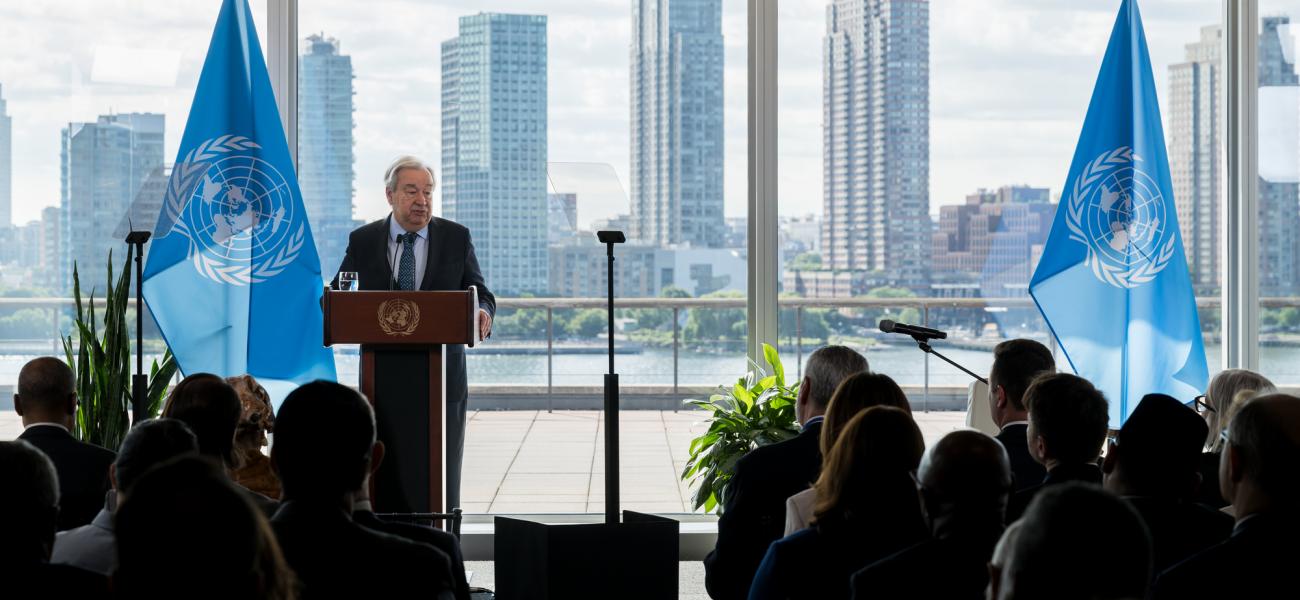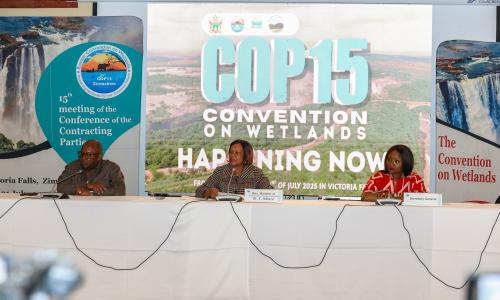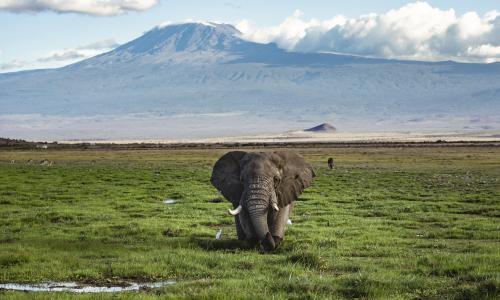“By 2040, Africa could generate 10 times more electricity than it needs – entirely from renewables,” the UN Secretary-General said, speaking at the launch of a landmark multi-agency energy report supported by the IEA, IRENA, IMF, OECD, World Bank, and UN agencies.
He emphasized that while Africa is enriched with renewable resources, the continent remains underserved when it comes to investments. “Africa is home to 60% of the world’s best solar resources. But it received just 2% of global clean energy investment last year.”
Across the continent, decentralized technologies are already changing lives. “We are already seeing small-scale and off-grid renewable technologies lighting homes, and powering schools and businesses in remote areas.”
Mr. Guterres stressed that renewable energy offers genuine energy sovereignty, especially for developing countries that have long been exposed to global fossil fuel market shocks. “There are no price spikes for sunlight. No embargoes on wind,” he said.
“Renewables can put power – literally and figuratively – in the hands of people and governments,” he added. “And almost every nation has enough sun, wind, or water to become energy self-sufficient.”
A green economy with jobs and growth
Mr. Guterres pointed to the accelerating economic impact of clean energy. “In 2023 alone, clean energy sectors drove 10% of global GDP growth,” he said. “And clean energy sector jobs now outnumber fossil fuel jobs – employing almost 35 million people worldwide.”
He emphasized that the transition must be inclusive: “The clean energy that we must deliver must also deliver equity, dignity and opportunity for all.”
This means “governments leading a just transition,” he said, “with support, education and training – for fossil fuel workers, young people, women, Indigenous Peoples and others – so that they can thrive in the new energy economy,” and “with stronger social protection – so no one is left behind.”
Reforming global finance for developing countries
To make clean energy a reality for all, Mr. Guterres called for bold reform of global financial systems. “We must drastically increase the lending capacity of multilateral development banks – making them bigger, bolder, and better able to leverage massive amounts of private finance at reasonable costs.”
He also called attention to the inequities developing countries face: “Today, developing countries pay outlandish sums for both debt and equity financing – in part because of outdated risk models, bias and broken assumptions that boost the cost of capital.”
“We need a new approach to risk that reflects: the promise of clean energy; the rising cost of climate chaos; and the danger of stranded fossil fuel assets,” he said.
On the issue of critical minerals essential to the clean energy economy, Mr. Guterres warned: “The critical minerals that power the clean energy revolution are often found in countries that have long been exploited. And today, we see history repeating. Communities mistreated. Rights trampled. Environments trashed. Nations stuck at the bottom of value chains – while others reap rewards.”
“This must end,” he said. “Let’s build a future that is not only green – but just. Not only fast – but fair. Not only transformative – but inclusive.”
He added: “The race for the new must not be a race for the few. It must be a relay – shared, inclusive and resilient.”
Rejecting fossil fuel dependency
Mr. Guterres delivered a sharp rebuttal against continued fossil fuel reliance. “Countries that cling to fossil fuels are not protecting their economies – they are sabotaging them,” he said. “Driving up costs. Undermining competitiveness. Locking-in stranded assets. And missing the greatest economic opportunity of the 21st century.”
He noted that, “Fossil fuels still enjoy a 9 to 1 advantage in consumption subsidies globally – a clear market distortion.”
“The clean energy future is no longer a promise. It’s a fact,” Guterres said. “No government. No industry. No special interest can stop it.”
But he emphasized that progress won’t happen by default. “It won’t happen on its own – not fast enough, not fair enough. It is up to us.”





